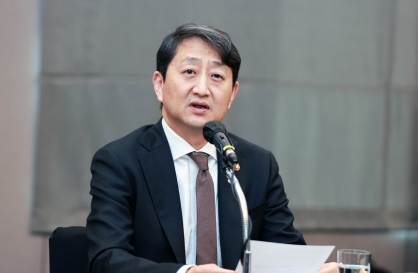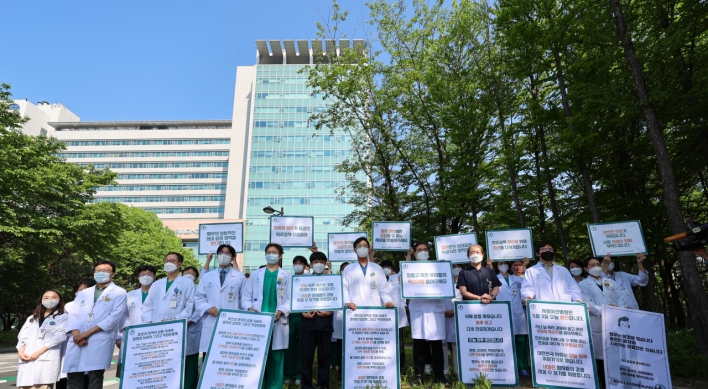[Editorial] Korea-Russia ties
Relations need more than visa waiver
By Korea HeraldPublished : Jan. 20, 2014 - 19:30
The United States, Japan, China and Russia are often referred to in Korea as the “neighboring four superpowers.”
Generally, the four countries that have the strongest influence on the Korean Peninsula and the region are mentioned in the above order.
But even without that order, one would not deny that South Korea’s relations with Russia are weaker than its ties with the other three, in terms of political, economic and civilian interactions.
For instance, about 167,000 Russians visited Korea and 95,000 Koreans traveled to Russia last year. The combined total of 262,000 falls far below comparable figures ― those between Korea and China standing at 6.8 million, Korea and Japan at 5.3 million and Korea and the U.S. at 1.8 million.
The implementation earlier this month of the Korea-Russia visa waiver program is a well-taken step for expanding human exchanges, which are vital for enhancing relations between any two countries.
The visa privilege would certainly provide a catalyst for bringing the former Cold War adversaries closer together. The Korea Tourism Organization expects that the number of Russian visitors to Korea will increase 20 percent this year. That is welcome news to the Korean travel industry, which has been struggling with a rapid decrease in the number of Japanese tourists.
In fact, Russians are big spenders in the global tourism market. Russians represent the fifth-biggest tourism market in the world, with 35.7 million of them going abroad each year, spending a total of $43 billion, according to data by the Russian International Travel Monitor.
Local officials say a Russian visitor spends an average of $1,987 in Korea, $457 more than the $1,530 average spent by a foreign tourist. Russians are also big players in Korea’s medical tourism industry. The number of Russians who visited Korea for medical tourism has been rising steadily, from 1,758 in 2009 to 16,438 in 2012. The designation of the Korea Russia Mutual Visit Year 2014-15 should certainly help accelerate these and other civilian exchanges.
But expansion of human exchanges is not enough to elevate the level of bilateral relations. On the economic front, Seoul and Moscow are advised to resume negotiations on a free trade agreement, which have been in the doldrums since the two rounds of talks in 2008.
No kind of bilateral relations can prosper without a strong economic partnership. The two-way trade volume between South Korea and Russia exceeded $20 billion in 2011 for the first time and reached $22.5 billion in 2012. A free trade pact would let their commerce and trade ties soar. It is encouraging that Deputy Prime Minister Hyun Oh-seok said recently that the government planned to resume the FTA talks.
Closer civilian ties between Korea and Russia, augmented by an FTA, would also help upgrade their political and strategic relationship, which is crucial for peace and security on the Korean Peninsula and in Northeast Asia.
Generally, the four countries that have the strongest influence on the Korean Peninsula and the region are mentioned in the above order.
But even without that order, one would not deny that South Korea’s relations with Russia are weaker than its ties with the other three, in terms of political, economic and civilian interactions.
For instance, about 167,000 Russians visited Korea and 95,000 Koreans traveled to Russia last year. The combined total of 262,000 falls far below comparable figures ― those between Korea and China standing at 6.8 million, Korea and Japan at 5.3 million and Korea and the U.S. at 1.8 million.
The implementation earlier this month of the Korea-Russia visa waiver program is a well-taken step for expanding human exchanges, which are vital for enhancing relations between any two countries.
The visa privilege would certainly provide a catalyst for bringing the former Cold War adversaries closer together. The Korea Tourism Organization expects that the number of Russian visitors to Korea will increase 20 percent this year. That is welcome news to the Korean travel industry, which has been struggling with a rapid decrease in the number of Japanese tourists.
In fact, Russians are big spenders in the global tourism market. Russians represent the fifth-biggest tourism market in the world, with 35.7 million of them going abroad each year, spending a total of $43 billion, according to data by the Russian International Travel Monitor.
Local officials say a Russian visitor spends an average of $1,987 in Korea, $457 more than the $1,530 average spent by a foreign tourist. Russians are also big players in Korea’s medical tourism industry. The number of Russians who visited Korea for medical tourism has been rising steadily, from 1,758 in 2009 to 16,438 in 2012. The designation of the Korea Russia Mutual Visit Year 2014-15 should certainly help accelerate these and other civilian exchanges.
But expansion of human exchanges is not enough to elevate the level of bilateral relations. On the economic front, Seoul and Moscow are advised to resume negotiations on a free trade agreement, which have been in the doldrums since the two rounds of talks in 2008.
No kind of bilateral relations can prosper without a strong economic partnership. The two-way trade volume between South Korea and Russia exceeded $20 billion in 2011 for the first time and reached $22.5 billion in 2012. A free trade pact would let their commerce and trade ties soar. It is encouraging that Deputy Prime Minister Hyun Oh-seok said recently that the government planned to resume the FTA talks.
Closer civilian ties between Korea and Russia, augmented by an FTA, would also help upgrade their political and strategic relationship, which is crucial for peace and security on the Korean Peninsula and in Northeast Asia.
-
Articles by Korea Herald








![[K-pop’s dilemma] Time, profit pressures work against originality](http://res.heraldm.com/phpwas/restmb_idxmake.php?idx=644&simg=/content/image/2024/05/08/20240508050705_0.jpg&u=20240508171126)
![[K-pop’s dilemma] Can K-pop break free from ‘fandom’ model?](http://res.heraldm.com/phpwas/restmb_idxmake.php?idx=644&simg=/content/image/2024/05/09/20240509050541_0.jpg&u=20240509173751)









